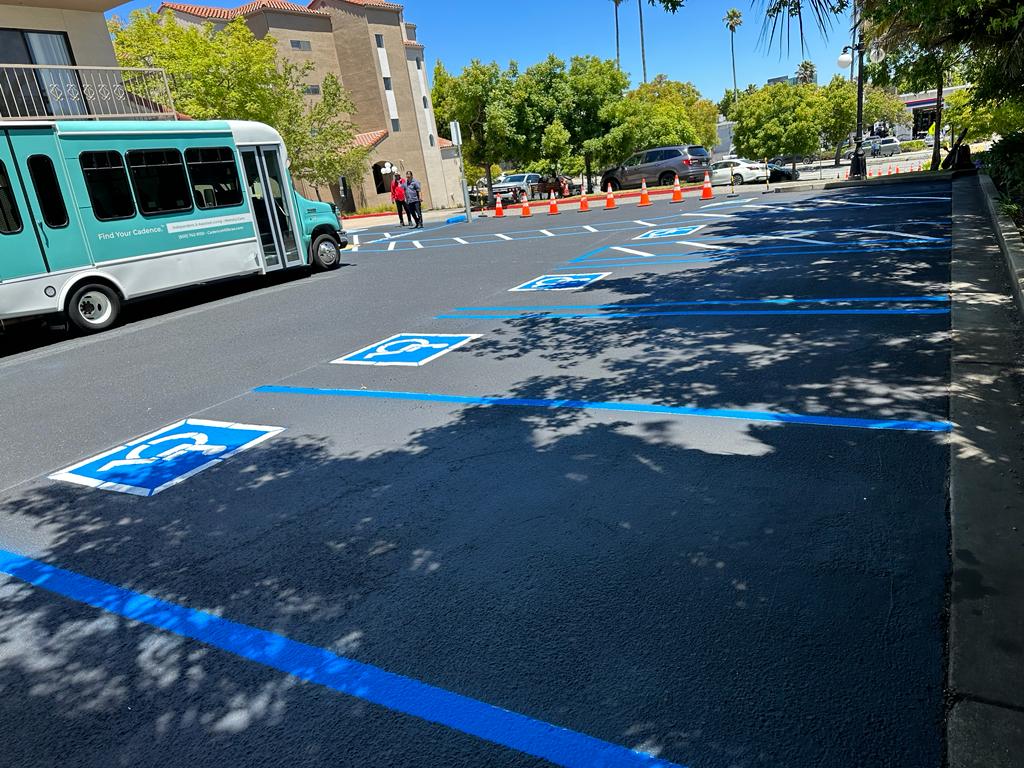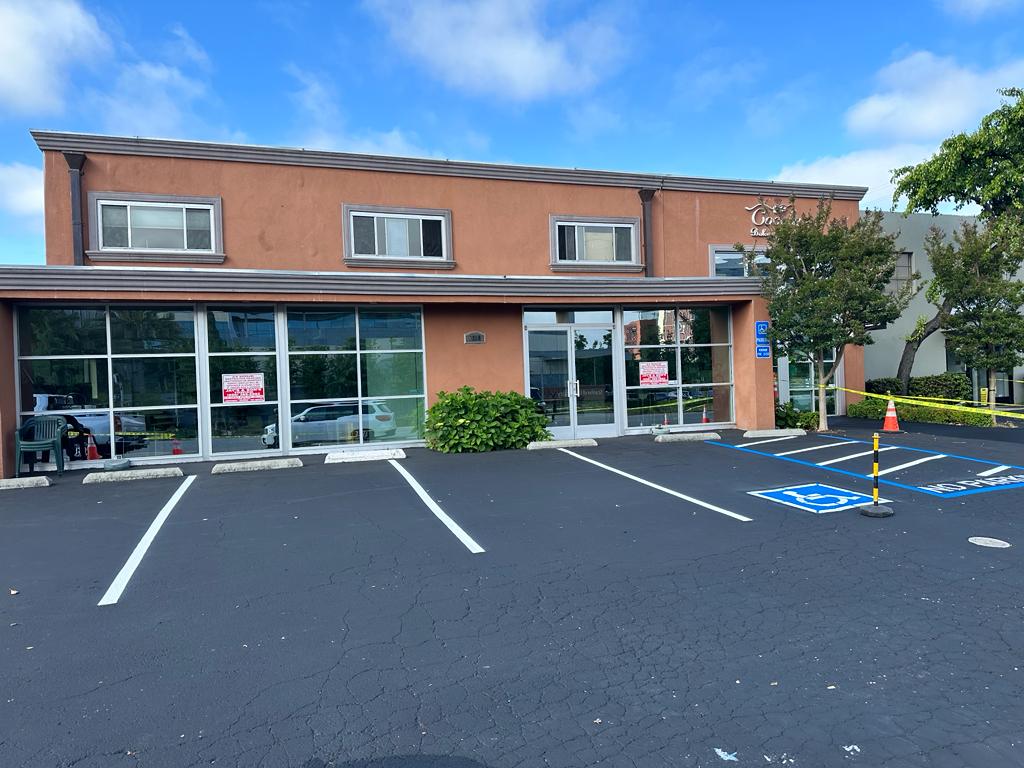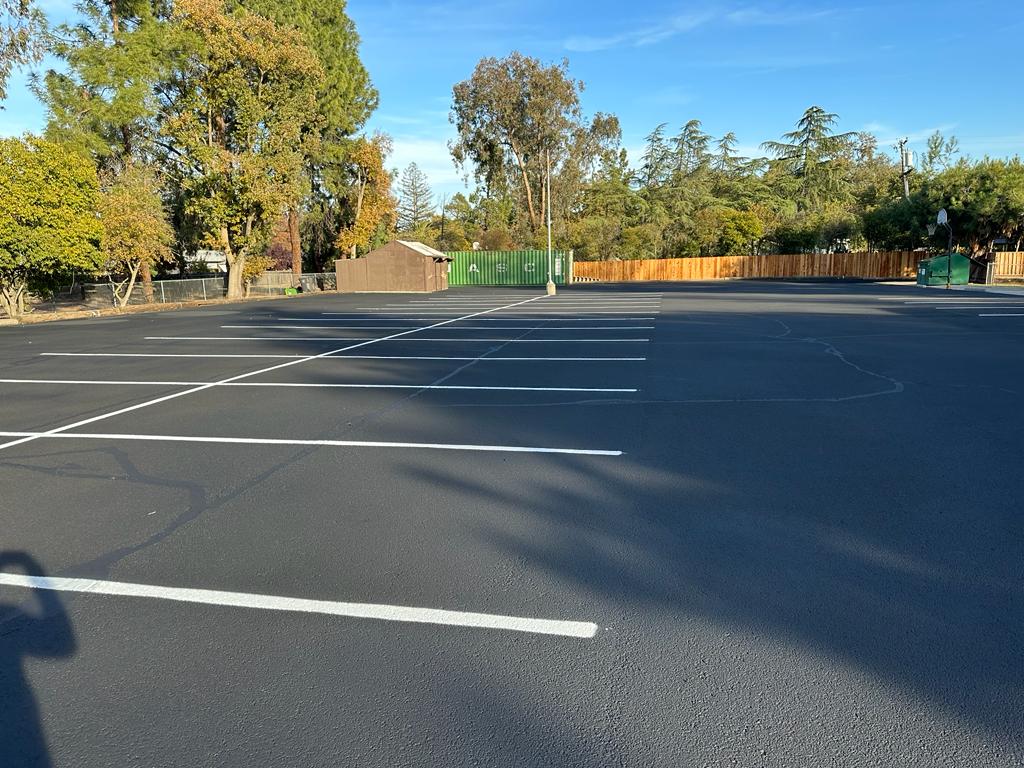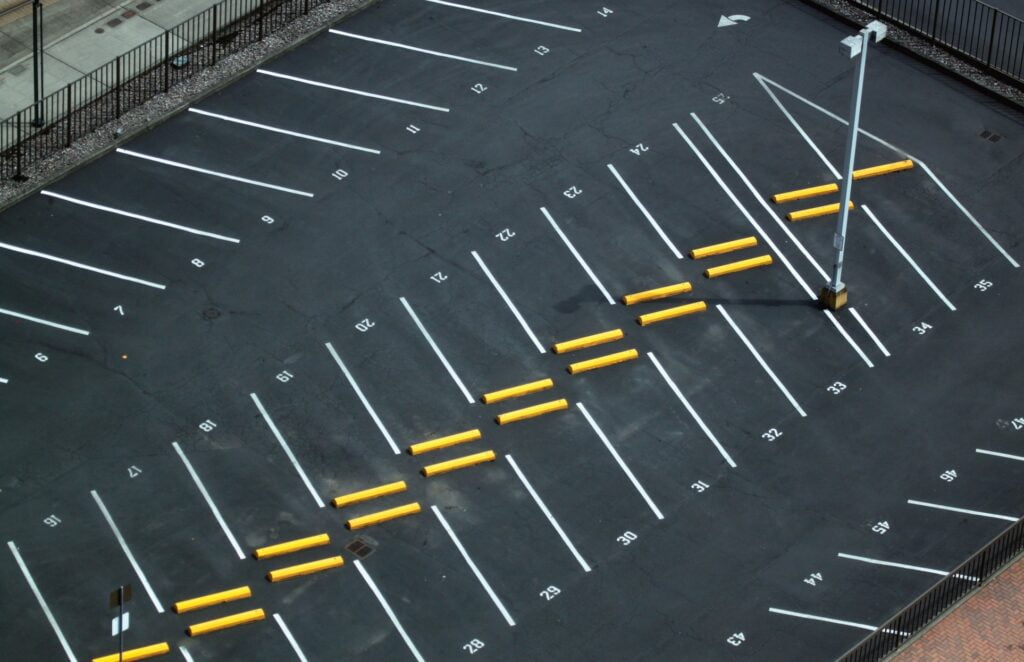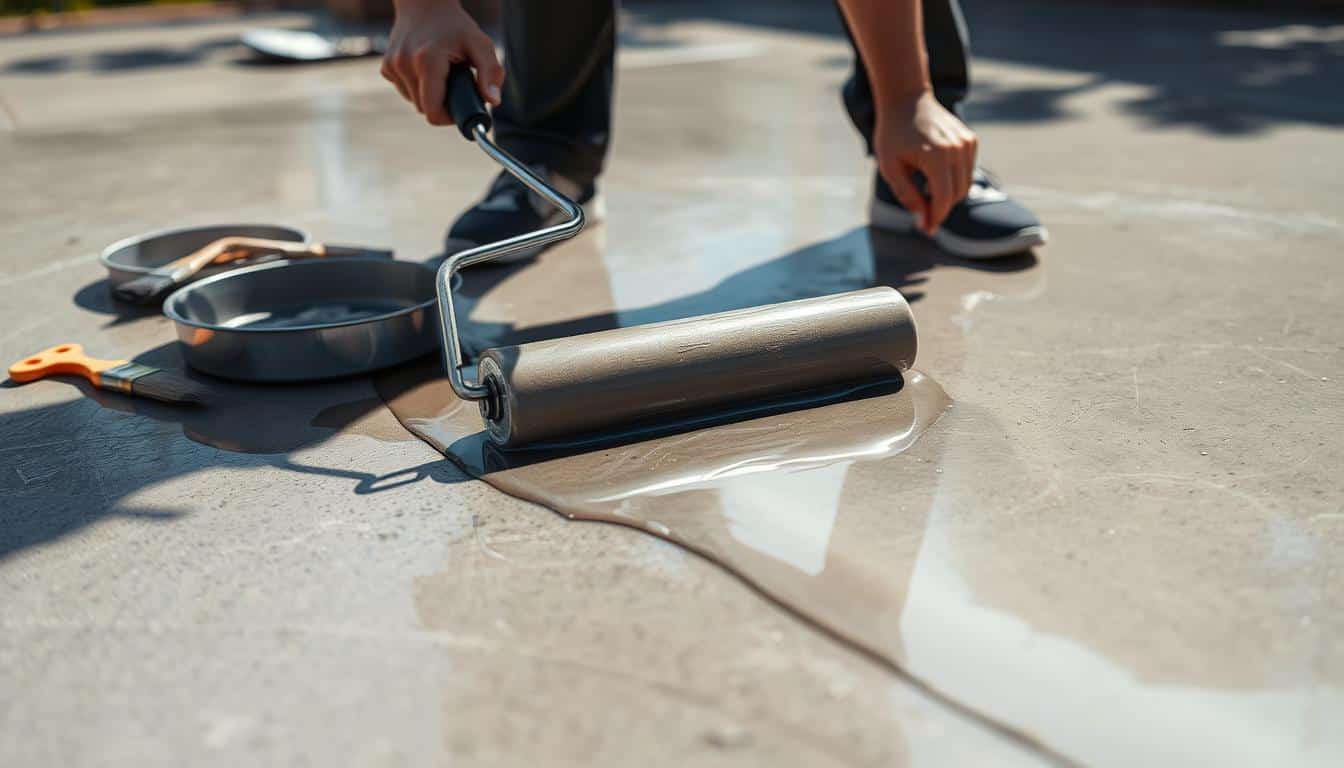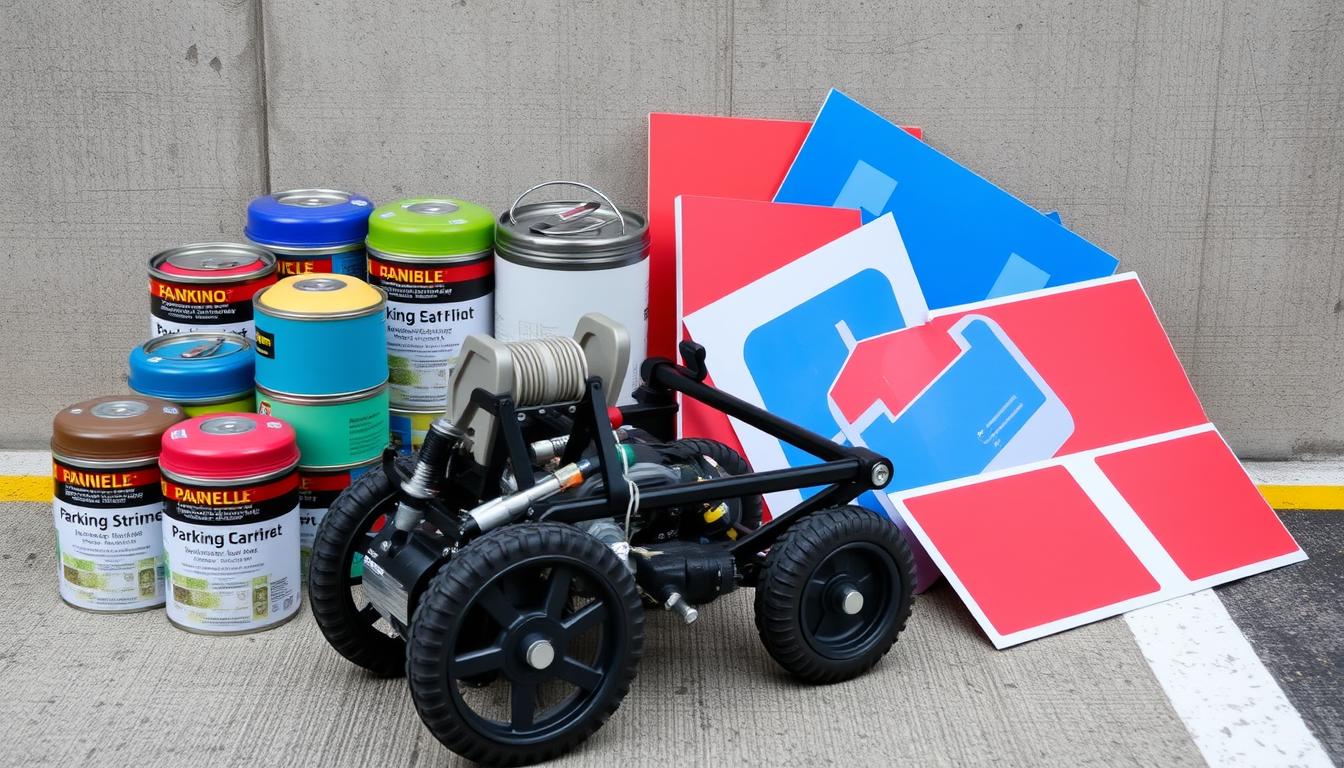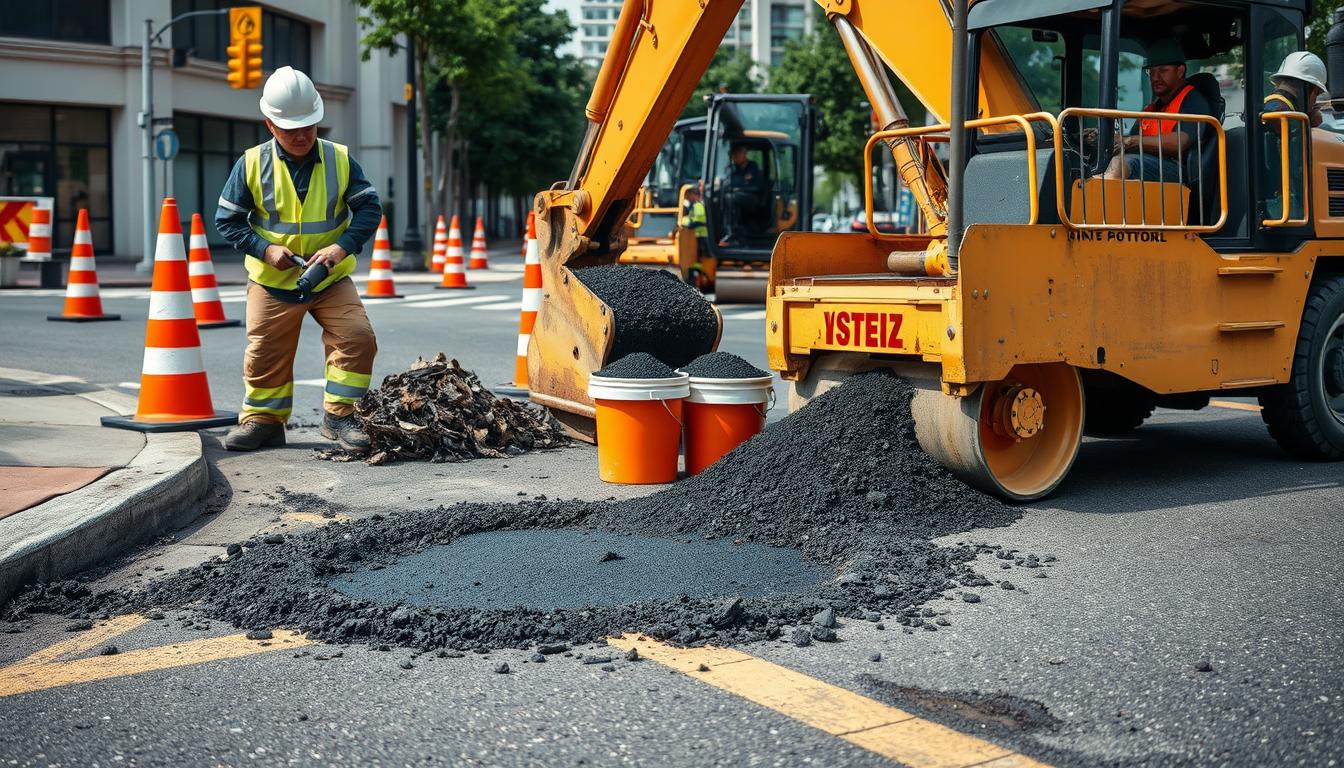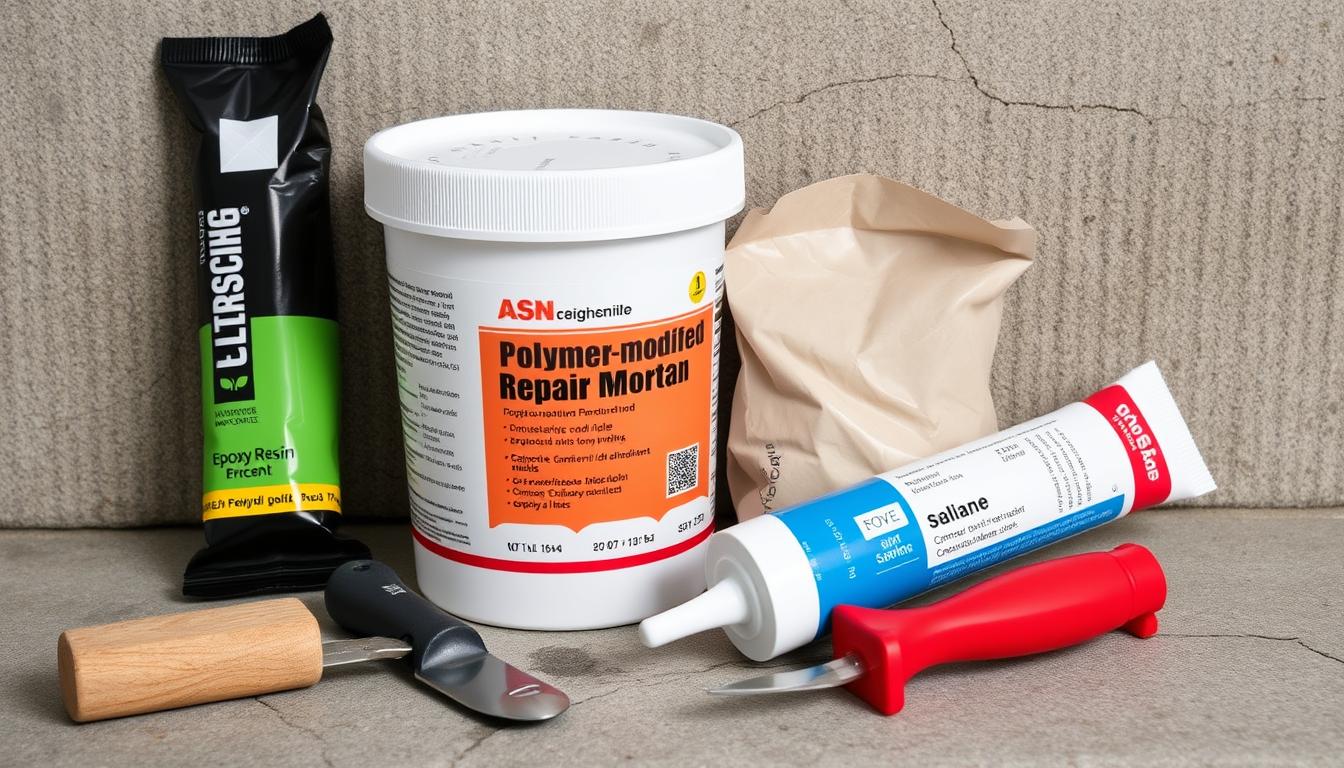Parking lot striping is a way to mark paved areas. Parking lot striping helps drivers navigate safely. It guides cars and people around.
It makes parking more efficient and safe. This is key for both business and public lots.
Importance of Parking Lot Striping
Striping in parking lots plays a big role. It’s not just about looks.
Without clear parking lot striping, confusion and accidents can happen in busy lots.
Knowing its value is key, no matter your needs.
Organization and Maximization of Space
Efficient parking lot striping makes sure each car has its own spot. This helps us use the space better.
Safety and Accessibility
Parking lot striping includes more than just lines. It also includes signs for accessibility and crosswalks. This makes it easier for everyone to navigate.
It also includes spots for people with disabilities. This ensures everyone can access the lot.
Regulatory Compliance
Striping must follow local or national rules. These rules ensure safety and accessibility.
Updated parking lot striping also ensures ADA compliance for accessible parking.
Types of Parking Lot Striping
There are many types of parking lot striping, each with its own purpose and design:
- Parking Lines: These lines mark individual parking spots, usually white or yellow.
- Traffic Flow Lines: These lines guide traffic, showing where you can go and where you can’t.
- No Parking Areas: These areas are marked with cross lines or an X, showing where you can’t park.
- Loading/Unloading Zones: These spots are for loading and unloading, with special colors and signs.
- Disabled Parking: These spots are for people with disabilities, marked with a blue wheelchair symbol.
- Safety/Emergency Lines: These lines mark safety areas, like evacuation zones or emergency accesses.
- Directional Lines: These lines help guide traffic in complex lots or multi-level areas.
- Pedestrian Zones: These lines keep pedestrians safe, outlining sidewalks and crosswalks.
- Speed Limit/Calming Lines: These lines remind drivers to slow down, at entrances or where pedestrians are.
- Waiting Zones: These areas are for waiting near building entrances, marked with specific lines.
Benefits of Parking Lot Striping in Public and Private Spaces
Parking lot striping is good for both public and private lots. In public lots, it helps manage traffic well. In private lots, like business or residential areas, it adds safety and looks good.
Other benefits of parking lot striping include:
- It helps mark special areas like electric vehicle charging stations or pickup/drop-off zones.
- It makes parking easier during busy times by clearly showing where to park and how to move.
- It helps the environment by reducing the time cars spend looking for parking, which cuts down emissions.
- It makes a place look better, which can attract more customers, tenants, or visitors.
- It helps emergency vehicles get where they need to go quickly and easily.
- It makes events or busy times better by organizing the space, improving the experience for everyone.
- It saves money on maintenance because clear lines mean less wear on the pavement.
- It shows that a place is well-managed, which looks professional and makes a good impression.
Duration of the Striping Process
The time it takes to stripe a parking lot varies a lot. This depends on several things.
Size of the Parking Lot
- Small Parking Lots: Smaller lots get striped quickly, usually in a few hours or a day.
- Large Parking Lots: Bigger lots or those with complex designs take longer. The more spaces and details, the longer it takes.
Type of Striping Job
- New Layouts: Starting from scratch takes more time. It involves planning, measuring, and marking before painting.
- Re-striping: Refreshing existing lines is quicker. But, if the lines are faded or need changes, it might take longer.
Type of Paint Used
- Water-based Paints: These dry fast but might need more coats.
- Solvent-based or Thermoplastic Paints: These dry slower but last longer and need fewer coats.
Weather Conditions
- Ideal Conditions: Striping works best in dry, warm weather. Paint dries faster then.
- Adverse Weather: Cold, humid, or wet weather slows down drying. Some paints need specific weather conditions to apply well.
Preparatory Work
- Surface Preparation: Cleaning or repairing the pavement before striping adds time.
- Layout Planning: Complex designs require more planning and measuring time.
Equipment and Crew Efficiency
- Professional Crew: A skilled team with modern tools works faster and better.
- DIY or Inexperienced Teams: Those without experience or proper tools take longer.
Traffic Management
- Open Lots: Working on open lots is slower. It needs sectioning and traffic control.
- Closed Lots: Closed lots allow for quicker work without interruptions.
10 Advantages of Hiring a Specialized Company
Some might think doing the striping themselves saves money. But, there are many benefits to hiring a specialized company:
- Regulatory Compliance: Companies like HT Paving know all about parking lots. They make sure everything follows local, state, and federal rules. This includes ADA rules for accessible parking spaces.
- Customized Solutions: They can tailor solutions for any parking lot. This is true for small businesses or big commercial areas.
- Superior Materials: They use top-notch paints and materials. These are good-looking and can handle traffic and weather.
- Longevity: The materials they use make the striping last longer. This means you won’t have to re-strip as often.
- Time-Saving: Professional teams like htpsealcoating.com work fast. They get the job done quicker than doing it yourself. This means less disruption to your business.
- State-of-the-Art Equipment: They use the latest tools for precise and even striping. This is hard to do by hand.
- Vertical Signage and Wayfinding Solutions: They also handle signs, curbs, and bollards. This makes the parking area better for everyone.
- Regular Maintenance and Inspections: They offer regular checks and touch-ups. This keeps the parking lot safe and up to code.
- Liability Reduction: Hiring a pro reduces the chance of parking mistakes. This could lead to accidents or legal problems.
- Aesthetic Appeal: A well-striped parking lot looks great. It makes a good first impression on visitors or customers.
Conclusion
Parking lot striping is key for organization, safety, and following the rules. It’s not just about looks. It makes spaces better for everyone.
Choosing professional services means you get quality work. It lasts a long time and follows all the rules.

